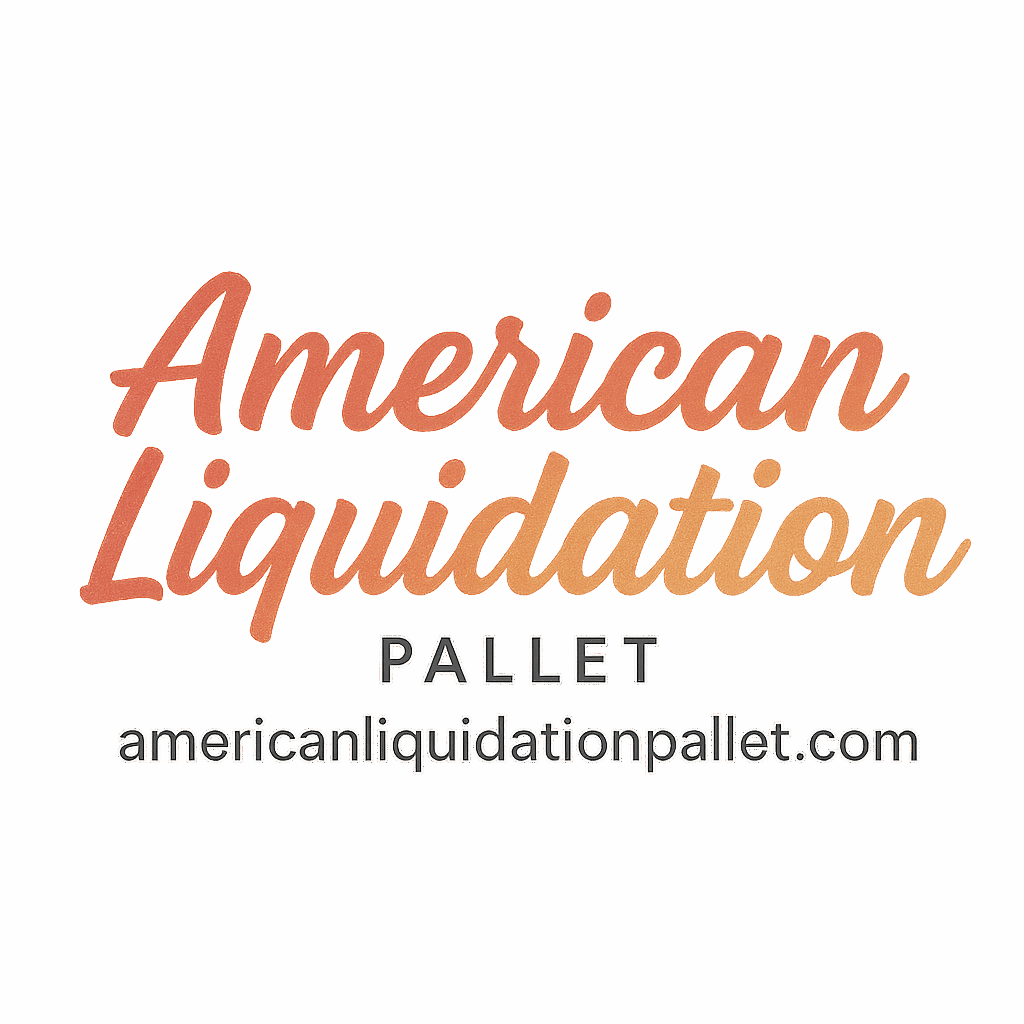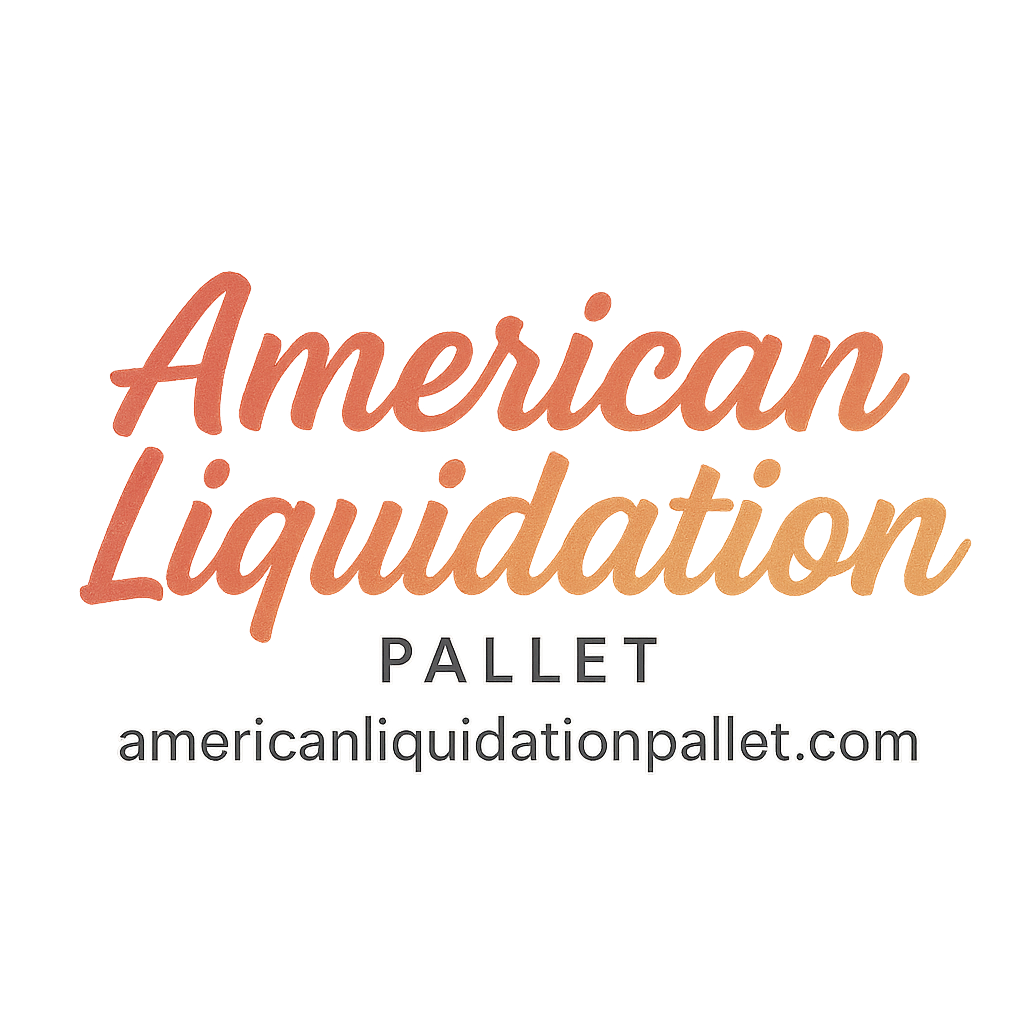Introduction
So, you’re thinking about diving into the world of liquidation pallets? You’re not alone. With reselling platforms like eBay, Facebook Marketplace, and Amazon booming, more and more people are flipping liquidation goods for profit. But here’s the catch—this industry isn’t all gold mines and hidden treasures. Sometimes, it’s full of duds, scams, and red flags waving in your face. That’s why knowing what to watch out for can save you a ton of money and frustration.
In this guide, we’ll walk you through seven red flags to look for when buying American liquidation pallets, helping you avoid costly mistakes and set yourself up for success. Whether you’re a beginner or a seasoned flipper, keep reading—this could save your business.
1. Unrealistically Low Prices
Why Dirt-Cheap Isn’t Always a Steal
Let’s face it—liquidation pallets are meant to be affordable, but when the price looks too good to be true, it probably is. Scammy sellers use shockingly low prices to lure in unsuspecting buyers who are excited about turning a quick profit.
Imagine finding a pallet advertised as “100 electronics items for just $50.” That’s not a deal—it’s a trap.
How to Spot This Red Flag
- Compare prices across multiple sources.
- Be cautious if there are no brand names listed.
- Avoid sellers that don’t offer photos of the actual pallet.
Reputable sites like American Liquidation Pallet are transparent with pricing. You’ll find helpful guides like the Basics of American Liquidation that show what fair pricing looks like.
2. Lack of Return or Refund Policy
The Risk of Final Sales
Legit liquidation platforms often mention that pallets are sold “as is,” but they’ll still have some policy in place for misrepresented goods. If a seller refuses to even talk about returns, take it as a massive red flag.
What a Fair Policy Looks Like
- Some sort of buyer protection.
- Clear communication on what’s covered.
- Returns on fraudulent or grossly misrepresented items.
Platforms that focus on long-term trust, like those offering resources for selling and flipping American liquidation goods, usually address these policies upfront.
3. Vague or Missing Inventory Descriptions
The Devil’s in the Details
Would you buy a car without knowing the make, model, or mileage? Then why risk money on a mystery pallet?
Too many sketchy sellers use generic descriptions like “Miscellaneous items – may contain returns” without elaborating. That’s a gamble you shouldn’t take.
Why Full Descriptions Matter
- You’ll know what categories of products to expect.
- You can calculate potential resale value.
- You avoid surprises like broken or expired items.
For smart sourcing strategies, check out this helpful guide on buying & sourcing liquidation pallets.

4. No Verified Reviews or Testimonials
Are You Their First Buyer? Probably Not
If a seller claims to be a liquidation pro but has zero reviews, that’s suspicious. It’s even worse if their testimonials seem overly generic or copied from other sites.
Trust But Verify: Look for These Clues
- Check Google and Trustpilot reviews.
- Search for seller names on reselling forums.
- Look for social proof on their website or Facebook page.
Websites that share success stories and case studies help you validate their legitimacy and track record.
5. Poor Customer Support or Communication
Ghosting Isn’t Just for Dating
Try messaging the seller. If they take days to reply—or worse, never do—you’re dealing with someone unreliable. Great customer service means they care about your success, not just your wallet.
Signs of Good Seller Communication
- Quick replies (within 24 hours).
- Clear, professional answers.
- Willingness to share shipping info and tracking.
You’ll often find solid communication standards discussed on tips, trends, and strategies pages from reputable platforms.
6. Limited Payment Options
Why Secure Payment Methods Matter
A legitimate liquidation business will accept secure payment methods like credit cards, PayPal, or even escrow services. If someone asks for a wire transfer or payment via crypto only… run.
Sketchy Payment Requests to Avoid
- Western Union or MoneyGram
- CashApp or Venmo for large orders
- Asking for gift cards as payment (yes, it happens!)
Stick with trusted eCommerce practices when paying for pallets, especially for high-ticket items.
7. No Company Background or Online Presence
Are They Hiding Something?
Try Googling their business name. If nothing comes up—or all you find are complaints and warnings—steer clear. A real business will have a website, social media presence, and contact info.
Do Your Online Homework
- Look for “About Us” pages or company mission statements.
- Confirm their location and business registration.
- Search for tags like American Liquidation or online sources to find industry leaders.
Best Practices Before Buying
Use Reputable Sources
Platforms like American Liquidation Pallet are your best bet. They’ve built trust with both beginners and pros. Plus, they offer insights for young entrepreneurs looking to break into the business.
Research Before You Spend
- Read blogs, Reddit threads, and Facebook group posts.
- Watch YouTube unboxing videos.
- Ask questions before you buy.
The beginner tips tag on trusted sites is gold for new resellers.
Conclusion
The liquidation pallet world is filled with opportunity—but also potential pitfalls. You can absolutely make money, grow your eCommerce business, and even turn this into a full-time gig. But before you dive in, make sure you’re not ignoring any red flags. When in doubt, step back, ask questions, and compare options. The smartest resellers don’t just buy pallets—they buy wisely.
Ready to start flipping with confidence? Stick with reliable partners, trust your gut, and let the American Liquidation Pallet community guide you every step of the way.
FAQs
1. Can I trust new sellers offering liquidation pallets online?
Maybe, but only after doing your homework. Check their reviews, background, and how they handle payments.
2. What’s the biggest red flag when buying liquidation pallets?
Unrealistically low prices. If it feels like a steal, it’s probably a scam.
3. Are returns common with liquidation pallets?
Not always. Most pallets are sold “as-is,” but reputable sellers will offer help if the goods are misrepresented.
4. Should I buy a mystery box pallet without a manifest?
We’d say no, especially if you’re a beginner. Start with manifested pallets until you know what to expect.
5. How do I find trustworthy liquidation sources?
Start with resources like American Liquidation Pallet and browse their tags like best sites.
6. Is PayPal a safe way to pay for liquidation pallets?
Yes! PayPal offers buyer protection, which is critical in this industry.
7. Can Gen Z make money flipping liquidation pallets?
Absolutely! Many Gen Z entrepreneurs are using online platforms to build profitable side hustles from pallets.


